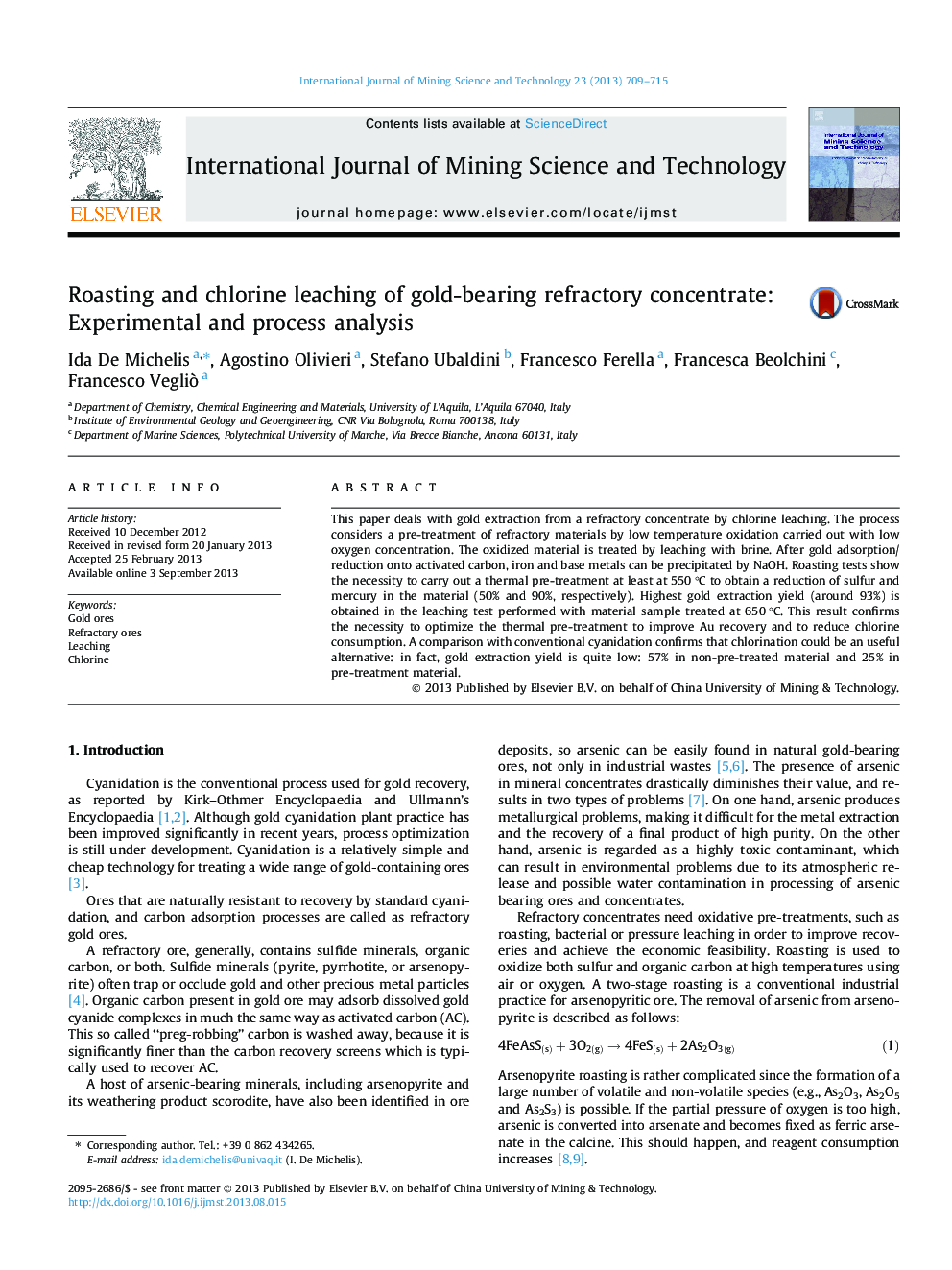| Article ID | Journal | Published Year | Pages | File Type |
|---|---|---|---|---|
| 275282 | International Journal of Mining Science and Technology | 2013 | 7 Pages |
This paper deals with gold extraction from a refractory concentrate by chlorine leaching. The process considers a pre-treatment of refractory materials by low temperature oxidation carried out with low oxygen concentration. The oxidized material is treated by leaching with brine. After gold adsorption/reduction onto activated carbon, iron and base metals can be precipitated by NaOH. Roasting tests show the necessity to carry out a thermal pre-treatment at least at 550 °C to obtain a reduction of sulfur and mercury in the material (50% and 90%, respectively). Highest gold extraction yield (around 93%) is obtained in the leaching test performed with material sample treated at 650 °C. This result confirms the necessity to optimize the thermal pre-treatment to improve Au recovery and to reduce chlorine consumption. A comparison with conventional cyanidation confirms that chlorination could be an useful alternative: in fact, gold extraction yield is quite low: 57% in non-pre-treated material and 25% in pre-treatment material.
